College admissions scandal: Judge warns defendants
- Published
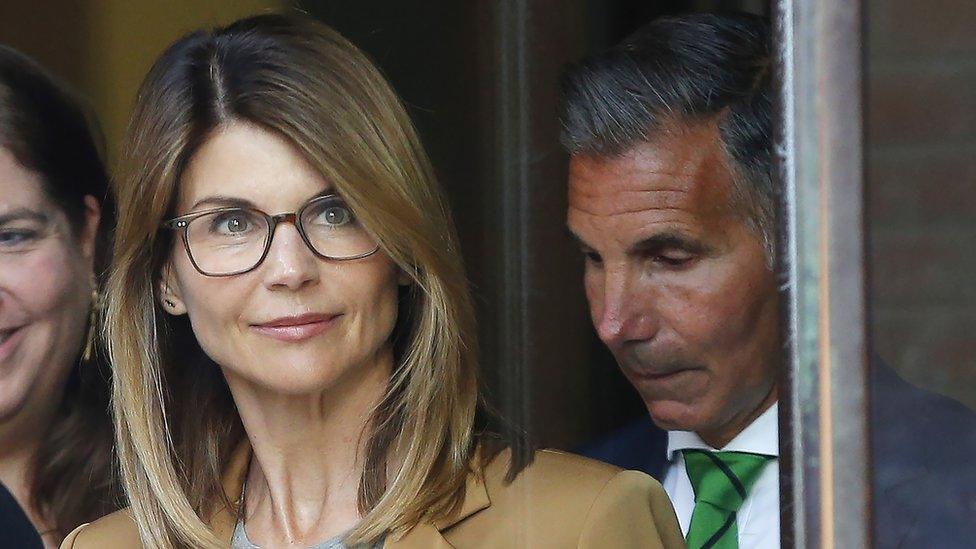
Lori Loughlin (L) is charged with her husband Mossimo Giannulli (R)
Parents including two US actresses accused in a college admissions scandal have been told to be careful while discussing it with their children.
A judge told defendants, including Felicity Huffman and Lori Loughlin, they should take care not to obstruct justice during family discussions.
Prosecutors had wanted the wealthy parents to require a lawyer present.
The first group of parents accused of paying $25m (£19m) in bribes appeared in Boston federal court on Wednesday.
The elaborate scheme, which aimed to acquire places for children at elite US universities, was revealed by federal investigators last month.
In total 50 people, including 33 parents and college athletic coaches, have been charged.
What happened in court?
The first 13 parents involved in the scandal appeared in court on Wednesday.
They were told their legal rights, charges against them and possible penalties for the alleged crimes.
During the hearing, US Magistrate Judge M Page Kelley imposed conditions on all the defendants' bail, ordering them to surrender their passports and not to have firearms in their homes.
Prosecutors had wanted the accused banned from discussing the charges with their children.
"The kids in these cases are witnesses and this could raise obstruction of justice issues," prosecutor Eric Rosen argued in court.
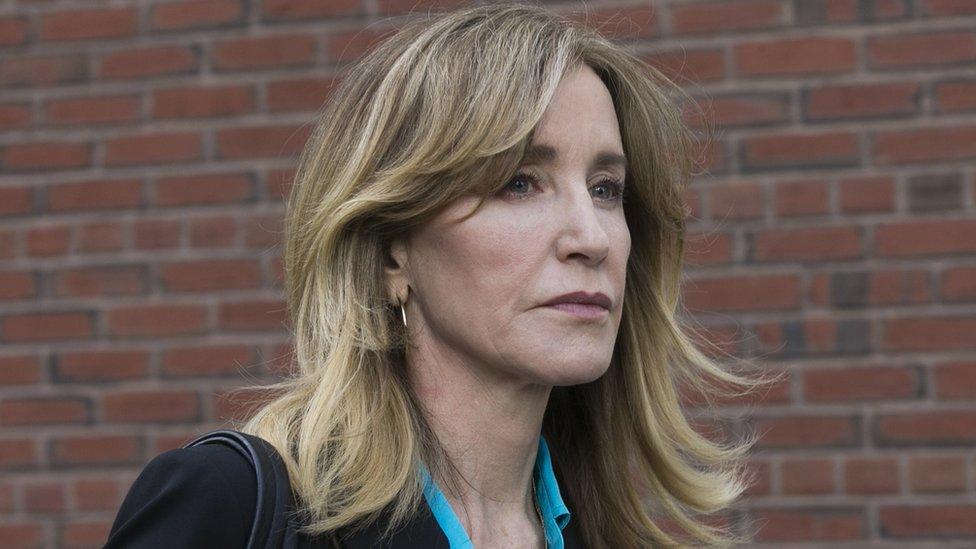
Felicity Huffman's husband, William H Macy, has not been charged
But Judge Kelley said: "I just don't think that's realistic."
She did, however, recommend the accused seek legal advice about any such family discussions so as to avoid the risk of interfering with the case.
Some of the parents charged in the scheme have started plea negotiations with prosecutors.
On Wednesday, packaged food entrepreneur Peter Sartorio became the first to say he will plead guilty.
Desperate Housewives star Ms Huffman, 56, did not speak as she left the court.
Ms Loughlin, 54, an actor in US sitcom Full House, signed autographs for fans outside.
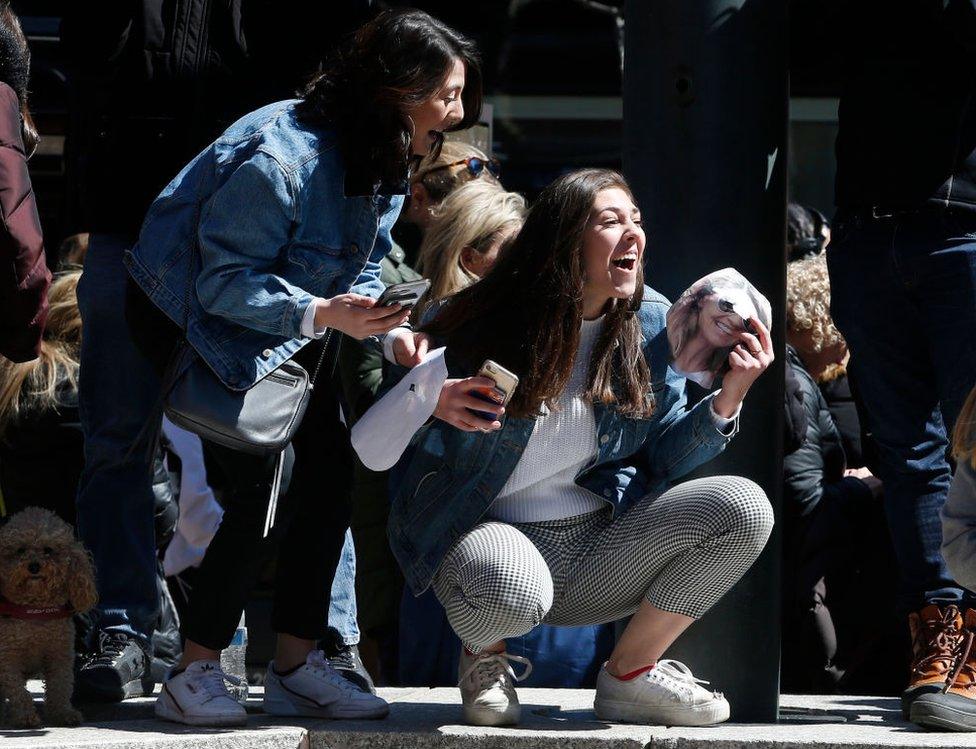
Fans outside the court cheered when Ms Loughlin arrived in a black van
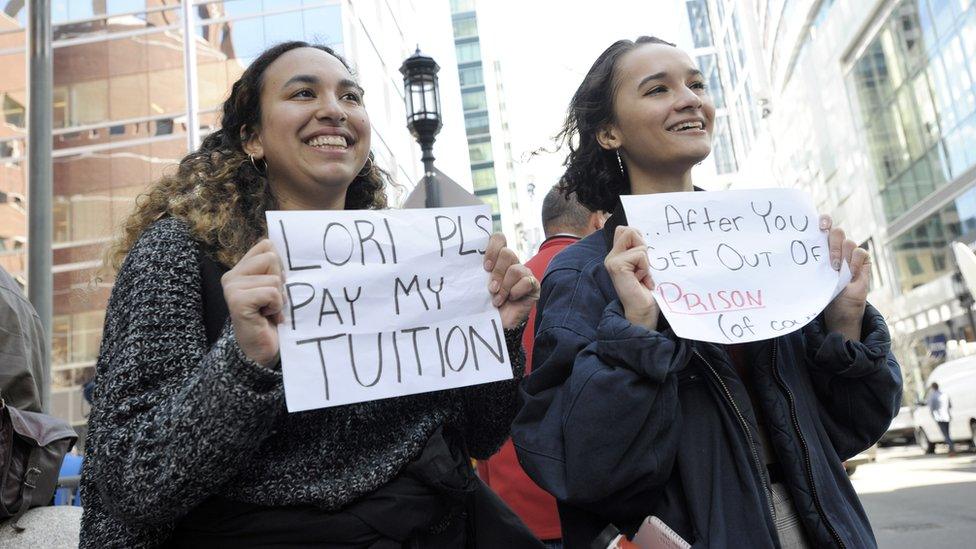
Mackenzie Thomas and Vivi Bonomie hold signs while actress Lori Loughlin attends court
What are the accusations?
The FBI code-named the investigation "Operation Varsity Blues" - ironically named after a 1990s film about the pressures of sports scholarships.
The case relates to the period between 2011 and 2018, when investigators say parents tried to cheat the usual US admission process.
They say parents paid bribes, had exams altered and even had their children edited onto stock photos to pretend they played sports.
The US actresses are the most high-profile indictments, but others charged include prominent business executives.
Ms Loughlin is accused along with her husband of paying nearly $500,000 in bribes to get their two daughters admitted to University of Southern California.
Investigators say they helped them get in on rowing scholarships, even though neither student had actually participated in the sport.
Ms Huffman is accused of paying $15,000 to William "Rick" Singer - the confessed mastermind of the alleged scam - to have her daughter's exam answers covertly corrected in 2017.
How US university admissions are broken
Neither actress entered a plea, but both said they understood the charges against them.
The pair have not commented publicly since the scandal.
What has happened to the students involved?
None of the students has been charged by investigators.
The FBI said that some were kept in the dark about the lengths that their parents were secretly going to.
The University of Southern California (USC) has said it will deny all applicants linked to the scam and is reviewing "case-by-case" those implicated who were already admitted or have graduated.
One student, who was studying at Yale University, has already had their admission revoked over an alleged $1.2m (£907,000) bribe uncovered by the FBI probe.
Does this happen elsewhere?
Parents going to extreme lengths to boost their children's academic success is not a uniquely US phenomenon.
In China, parents have protested against the measures imposed to stop their children from cheating in notoriously difficult university entrance exams.
Around 2,000 parents took to the streets in Hubei province in 2013 to demonstrate against enhanced anti-cheating measures.
The protests were part of a broader debate, external about the level of corruption in Chinese society, and the perception that cheating was so common that not doing so would put children at a disadvantage.
In 2016, photos emerged showing parents scaling the walls of a school in India's Bihar state to pass notes to their children inside during exams.
The photos led to the arrest of around 300 people, mostly parents and close relatives, after the images were shown in local media.
- Published28 March 2019
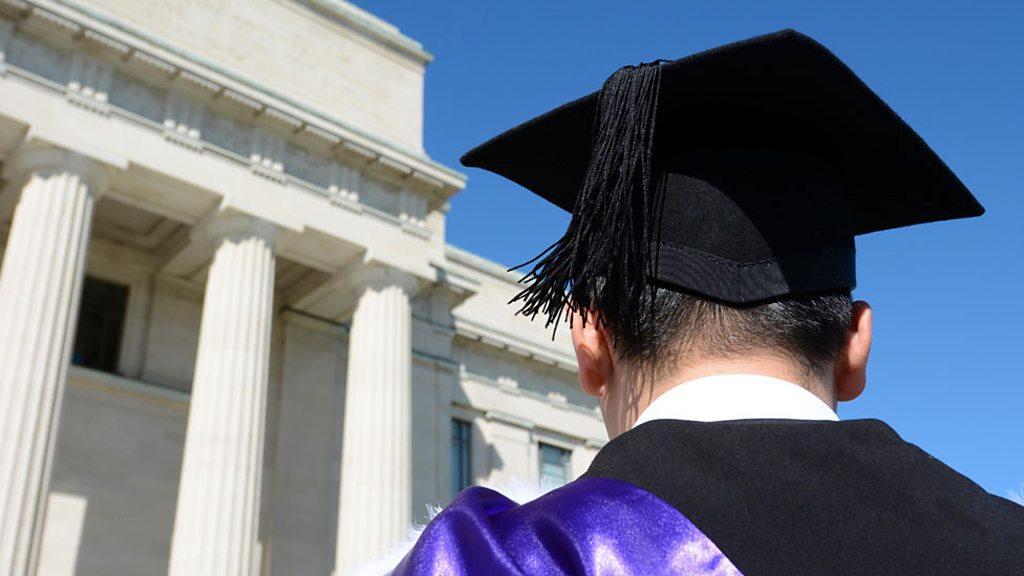
- Published12 March 2019

- Published25 March 2019

- Published19 March 2019

- Published13 March 2019
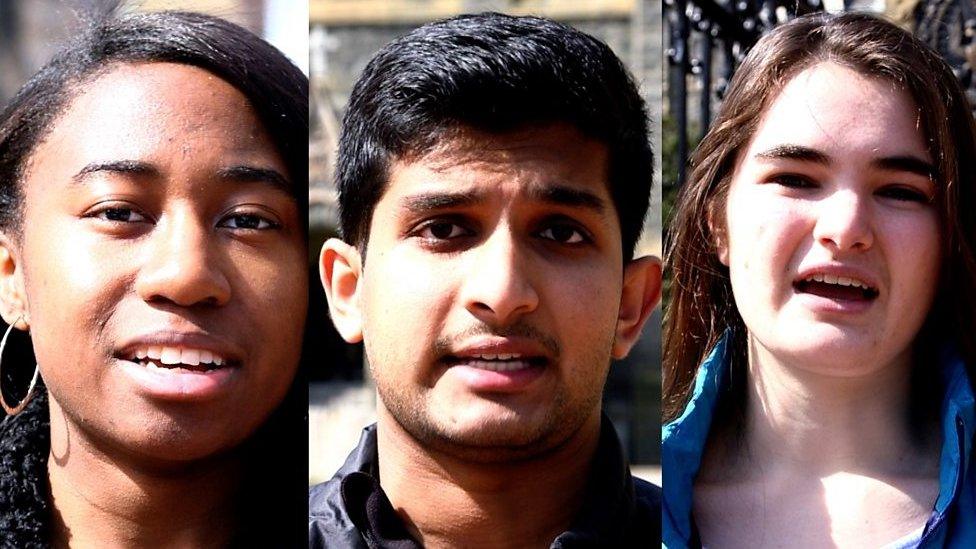
- Published15 March 2019
